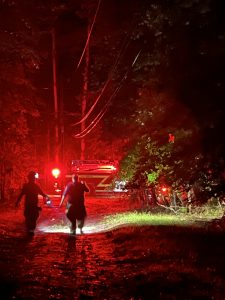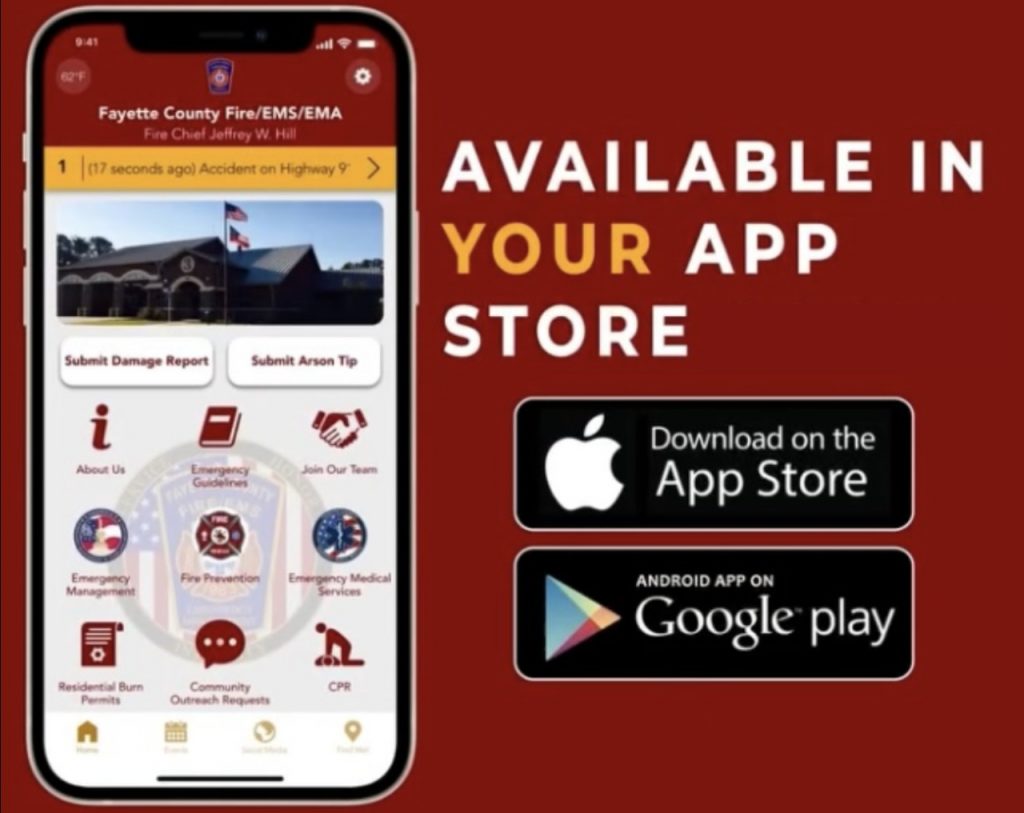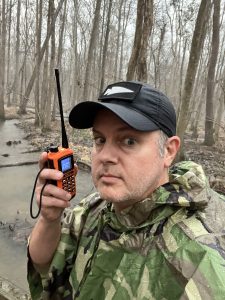Just as I was preparing to finalize my column for the week, Governor Kemp declared a State of Emergency in advance of Tropical Storm Debby. I thought it might be a good idea to preempt my planned column to provide some thoughts about emergency preparedness. Just last week, a storm blew down some of our trees and took out our power for almost 24 hours, so this topic is still quite fresh on my mind.

If you’ve read some of my previous columns, you know I place great importance on emergency preparedness. Some personal background is helpful so you know where I’m coming from. I volunteer with the Georgia Emergency Management and Homeland Security Agency (GEMA/HS) through their AuxComm program and wrote a column about how to apply the National Incident Management System (NIMS) to your business. If you’re in a leadership position at work, make sure you are prepared there. In this column, we’re going to focus on personal emergency preparedness.
After 9/11, I got really active in personal preparedness and attended the very first FEMA-sponsored Community Emergency Response Team (CERT) training hosted by the Peachtree City Police Department. That program is still going strong, and I highly recommend it.
My wife, Mary Catherine, shares my interest in preparedness, and we’re both licensed amateur (ham) radio operators. Earlier this year, I wrote a column about emergency communications and ham radio. Together, we’ve attended the Fayette County Citizen’s Fire Academy, the Fayetteville Police Citizen’s Police Academy, and the National Weather Service Skywarn spotter certification class. It’s important to know what our first responders do and how to be better citizens during incidents.
Well, the storm is coming this week, and you don’t have time to attend all of that training, so let’s focus on what you can do right now. Here are my suggestions:

- Stay Informed: The Fayette County Department of Fire and Emergency Services and the Fayette County Sheriff’s Office have new apps that will alert you to situations in our local area, including weather alerts, road closures, and other items of public interest. Download both of those apps from the Apple App Store or Google Play Store and turn on the messaging feature.
- Monitor the Weather: Although our public safety agencies relay official weather alerts, it’s also helpful to get those alerts directly from the National Weather Service. I recommend signing up for text alerts and having a Weather Alert Radio.
- Read/Listen/Watch the News: You’re obviously reading this column on a news website, but make sure you keep up with news from other sources. I’m a big fan of listening to broadcast radio, particularly WSB 750 AM/95.5 FM.
- Create an Emergency Plan: Know how you are going to escape your house, neighborhood, and local area if you need to evacuate. How are you going to communicate with family members if cell phones don’t work? Having backup communications is one reason my wife and I have amateur radio licenses. Have a backup communications plan. Also, consider other special needs like pets, infants, seniors, and individuals with disabilities.
- Build an Emergency Kit (aka “Go Bag” or “Bug out bag”): I keep a backpack ready to go in my car and another at home. It includes: water, water purification tablets, food, a first aid kit (I also carry a first aid kit in my laptop bag), tools & supplies, personal items, cash, documentation, hygiene products, battery chargers and cables, a change of clothes, inclement weather clothing, a flashlight, and a fire starter.
- Prepare Your Home: Ensure your home is ready by checking out the structure, fire escape routes, roofing, and possible areas of flooding. Know how to turn off utilities such as gas, water, and electricity if you need to do that yourself.
- Be Able to Protect Yourself and Your Family: I normally don’t make a big deal about it, but I do support the Second Amendment of the United States Constitution. Let’s just say that our family is prepared to exercise our Constitutional rights if that ever becomes necessary. I strongly encourage people, especially women, to take self-defense classes and have some type of personal defense system. There are some bad people out there, and sometimes an emergency brings out the worst in people.
- Just-in-Time Preparations: If I know a storm is coming, like I do right now, I will make sure all of my electronic devices are charged ahead of time and all of my radios, kits, and supplies are ready to be used if necessary.

Preparation is the key to weathering a storm or any other emergency situation. Last week, when the power went out, we knew what to do immediately. Seeing that some lines were down on my car, I called the Fayette County non-emergency line at (770) 461-4357 (since no one was trapped or hurt), and Fayette County Fire came out to help assess the situation and clear the lines for me. NOTE: If it is truly an emergency or you’re not sure, then go ahead and dial 911. We were able to switch our internet connections to data hotspots so that we could keep watching the Olympics online that night. I used prepositioned flashlights to see around the house.
Because trees had fallen on our power lines, I knew it might take some time for the EMC to get to our house. The next morning, we got ready for work at our local gym, and I was able to work from my co-working office located at Roam at Trilith. Later that afternoon, I got a text message from my home HVAC system that the power had been restored. When I got home later that day, I saw that we had new power poles up in the yard. Thank you, Coweta-Fayette EMC. The whole situation could have been worse if we had not been prepared. We knew what to do, who to contact, and how to make alternate plans to keep things as normal as possible.
Stay safe this week by making plans now. What are some tips that you have for maintaining personal emergency preparedness?
[Joe Domaleski, a Fayette County resident for 25+ years, is the owner of Country Fried Creative – an award-winning digital marketing agency located in Peachtree City. His company was the Fayette Chamber’s 2021 Small Business of the Year. Joe is a husband, father of three grown children, and proud Army veteran. He has an MBA from Georgia State University and enjoys sharing his perspectives drawing from thirty years of business leadership experience. Joe is a recipient of the Peachtree City Rotary Club Business Leader of the Year Award for 2024. Sign up for the Country Fried Creative newsletter to get marketing and business articles directly in your inbox. You can connect with Joe directly on LinkedIn for more insights and updates.]









Leave a Comment
You must be logged in to post a comment.